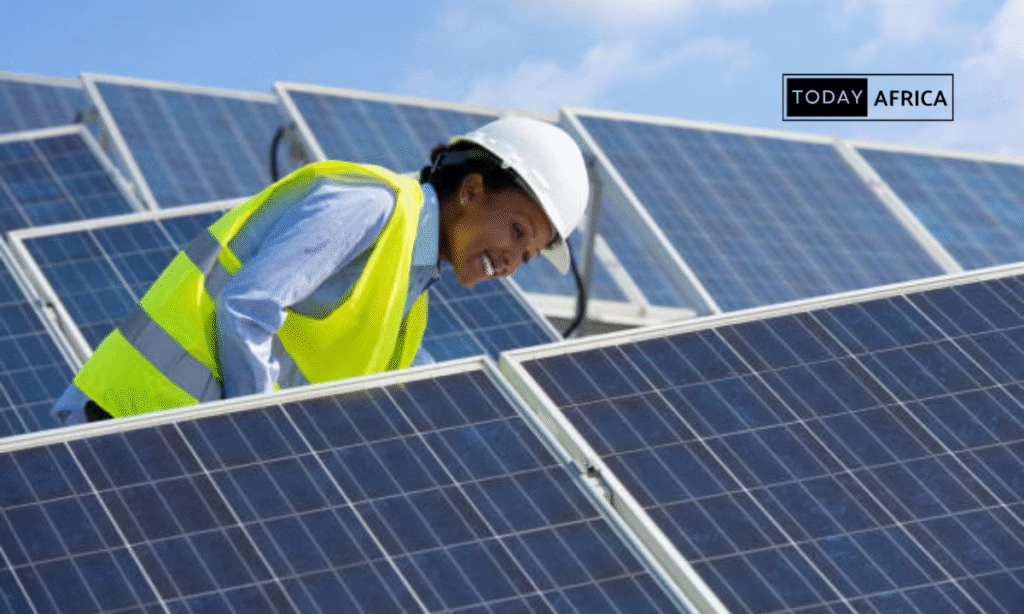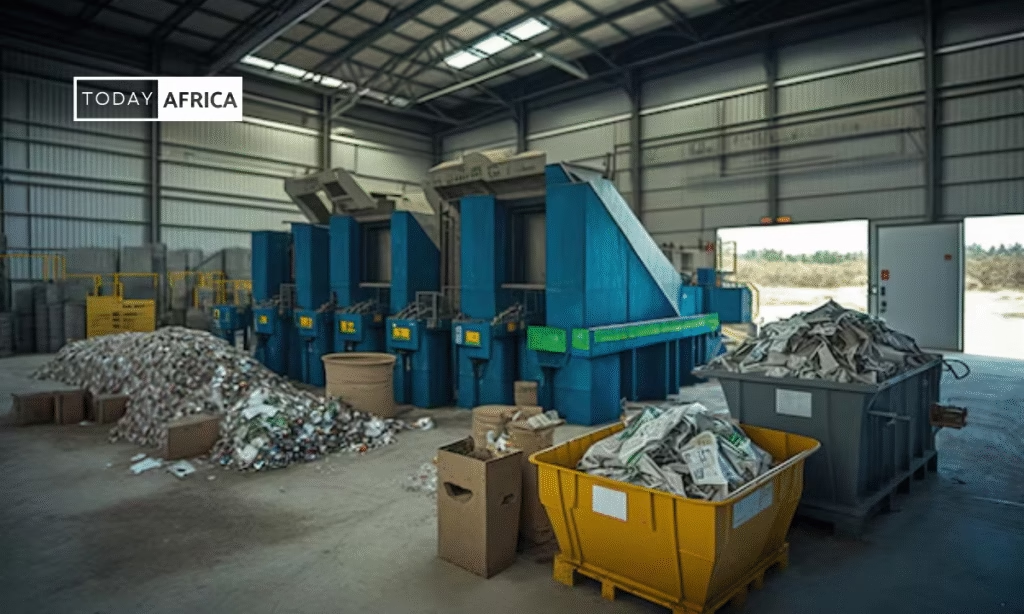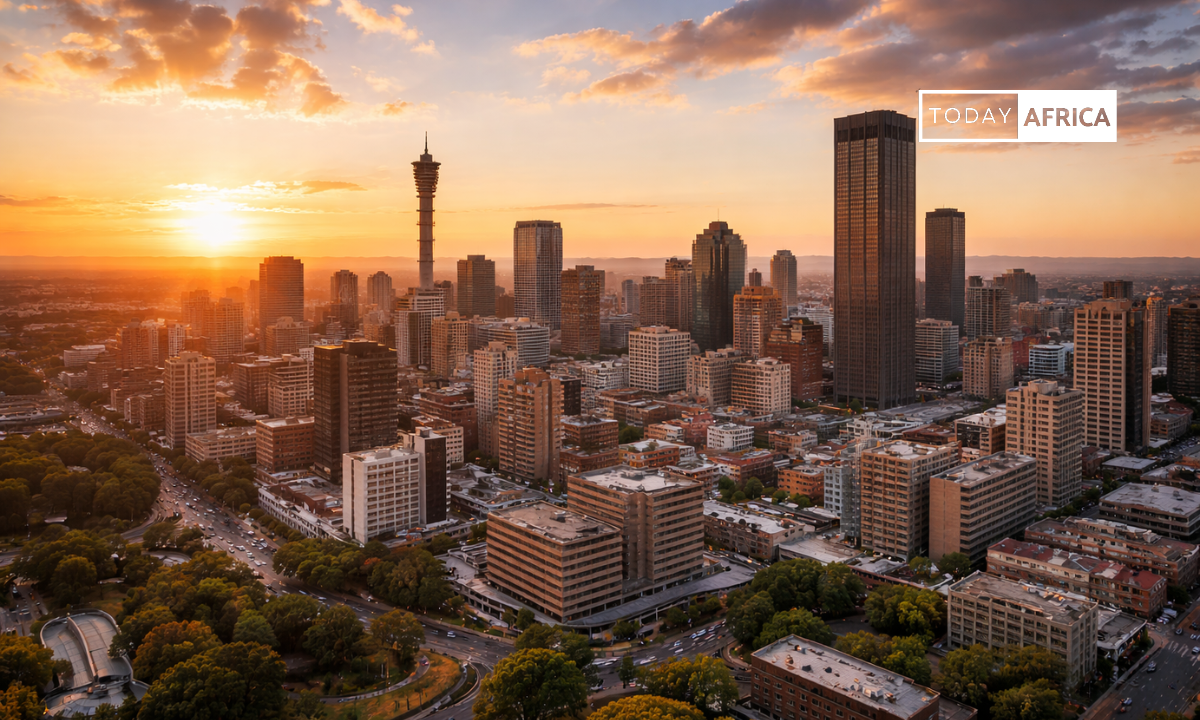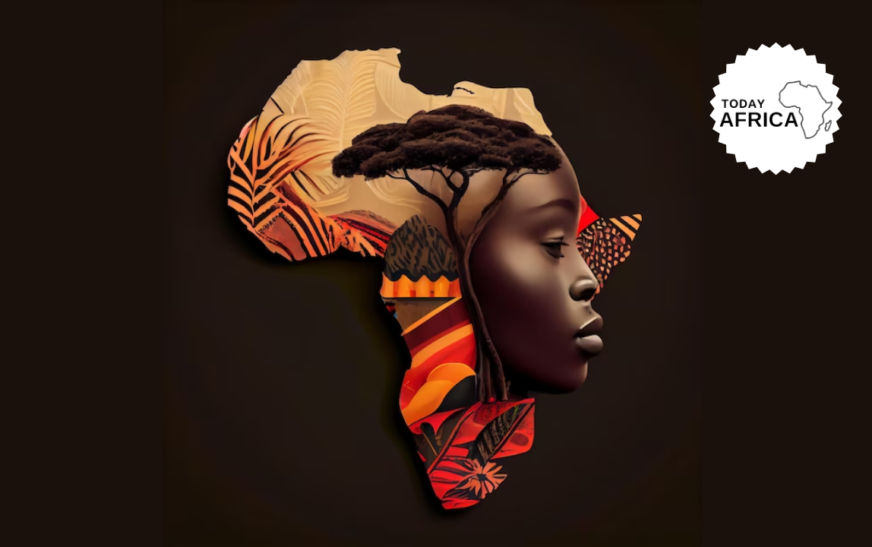What if Africa’s biggest challenges – energy shortages, food insecurity, and waste pollution—were also its greatest opportunities?
Across the continent, a new wave of green startups is proving that sustainability and profitability can go hand in hand.
From solar companies lighting up off-grid villages to recycling ventures turning trash into building materials, these businesses are rewriting the story of African innovation.
In this article, we’ll explore how green startups are building sustainable businesses in Africa and the sectors driving this movement.
By the end, you’ll see why Africa’s green revolution isn’t just about saving the planet—it’s about creating jobs, fueling economic growth, and shaping a more resilient future for millions.
Why Green Startups Matter in Africa
1. Environmental and social imperatives
Africa is highly vulnerable to climate change, even though its carbon footprint is small.
For example, the World Meteorological Organization notes that Africa produces under 10% of global greenhouse gases, yet suffers “devastating impacts” from heatwaves, droughts, floods and storms.
Climate-driven crop failures and extreme weather already harm food security and livelihoods for millions. Agriculture – which employs about 55% of Africa’s labor force – has seen productivity growth slow by a third due to climate stress.
In short, although African countries emit relatively little CO₂, they face major climate-related risks that demand local solutions. Green startups – by improving energy access, efficient farming, and waste management – help communities adapt and build resilience.
Moreover, many African cities and regions struggle with pollution, deforestation and inadequate infrastructure.
Startups that clean up waste streams or replace diesel with solar power not only protect the environment but also improve health and living conditions.
As Nigeria’s Wecyclers founder notes, her recycling program has made neighborhoods “cleaner” and residents “healthier”, while generating income for low-income families.
This “trash-to-treasure” model – where households earn rewards for collecting plastic and other recyclables – shows how green innovation can deliver both social and environmental benefits at the community level.
Read Also: How Startups are Leveraging AI in Africa to Drive Innovation & Growth
2. Demographics and economic opportunity
Africa’s youth population is booming, creating both a challenge and an opportunity. Over 60% of Africans are under age 25, and the continent’s population is forecast to reach about 2.5 billion by 2050.
This “demographic dividend” means millions of young people will enter the workforce in the next decade. At the same time, many African economies need new growth engines and millions of jobs.
Green startups – by offering new industries in clean tech, renewable energy, and sustainable agriculture – can absorb this talent and drive economic growth.
Experts agree this is a moment to act. The African Union’s Agenda 2063 and recent World Bank-backed strategies emphasize that climate action and green industry are central to Africa’s future.
The African Development Bank’s new ten-year strategy explicitly aims to “harness climate finance” and advance green economy value chains in renewable energy, smart agriculture, transport, waste and water management.
In other words, governments are counting on private entrepreneurs to help fulfill Africa’s massive needs (for power, water, food, and infrastructure) in environmentally sustainable ways.
At the same time, global investor interest in African climate solutions is surging. For example, by late 2024 African climate-tech startups had raised $413.9 million – fully one-third of all startup funding on the continent.
This surge shows that both local and international investors see big potential in African green businesses.
Africa’s climate challenges, youthful workforce and resource potential make green startups not just an ethical choice, but a compelling economic opportunity for innovation and growth.
Renewable Energy & Clean Power
Solar power and off-grid solutions
Africa holds vast renewable energy resources, particularly sunlight, with ~60% of the world’s best solar potential, yet it accounts for only around 1% of the global installed solar capacity.
Startups are stepping in to fill this gap and end chronic energy poverty in many areas. Pay-as-you-go solar companies, for example, have been transformative. Kenya’s M-KOPA and Nigeria’s Auxano Solar offer affordable solar home systems on credit.
Customers pay small amounts via mobile money to eventually own solar lamps, panels, or battery systems. M-KOPA, which was founded in 2011, has secured roughly $51 million in funding to expand this model.
Similarly, Nigeria’s Lumos provides modular solar kits to off-grid homes; it has raised about $212 million in debt financing to scale across West Africa.

Companies like Sun King (formerly Greenlight Planet) and d.light have also grown into household names by distributing solar lights and chargers. Sun King’s pay-as-you-go solar products have reached millions of homes and attracted $576 million in total funding.
d.light’s affordable solar lamps and systems, meanwhile, have raised about $176 million since 2007. These enterprises tackle energy access while cutting reliance on kerosene and diesel, reducing carbon emissions, and enabling people to study or work after dark.
Mini-grids, wind, and hydropower
Beyond rooftop solar, startups are innovating with mini-grids and other renewables. In remote or island communities, small solar- or hydro-based mini-grids can provide village-scale electricity.
For example, Hydrobox in Kenya builds containerized micro-hydro plants and mini-grids for rural areas.
Founded in 2018, Hydrobox raised $9 million to deploy its clean power solution. In East Africa’s highlands and parts of West Africa, there is also potential for wind and more hydro projects – though such deployments are fewer.
Some startups combine renewables with smart grid tech. For instance, South African Wetility offers a digital solar management platform that enables users to generate, store, and monitor renewable energy efficiently; it raised about $48 million in 2024 to scale up.
On the policy side, initiatives like Morocco’s Noor Solar Complex (one of the world’s largest solar plants) show the continent’s commitment to big renewables.
Even in energy, Africa is leapfrogging: many areas skipped centralized grids and went straight to distributed solar, a trend Green Startups are accelerating with innovations tailored for local markets.
Read Also: Why Agribusiness is Africa’s Next Big Goldmine
Sustainable Agriculture & Food Security
Agritech and climate-smart farming
Agriculture is the backbone of many African economies, but climate change, droughts and old farming methods threaten yields. Green tech startups are bringing innovation to farms.
For example, SunCulture in Kenya offers solar-powered irrigation pumps and climate-smart farming kits.
By using the sun to pump water and sensors to guide planting, smallholder farmers have seen crop yields rise dramatically (one company report cites 2–3× yield increases) while cutting water use. SunCulture’s impact and growth attracted about $27.5 million in funding.
Another example is Hello Tractor, an “Uber-for-tractors” platform. Farmers can rent nearby tractor owners via a mobile app, enabling efficient land preparation even if they can’t afford a tractor outright.
This kind of digital agritech increases productivity and income for rural farmers.
Financial services startups also play a role: Apollo Agriculture (Africa-wide) uses data and AI to help farmers get credit, insurance, and training. Both SunCulture and Apollo were backed by international climate funds.
These solutions address food security directly. As Village Capital notes, startups in “food security, climate adaptation, [and] renewable energy” are core to Africa’s future.
By combining local knowledge with technology (drones, mobile platforms, IoT sensors), agri-tech entrepreneurs are helping farmers cope with erratic rains and poor soils.
In doing so, they boost harvests and incomes, while building a more resilient food system.
Food processing and supply chains
Innovation isn’t limited to the field. Startups are also improving food storage, processing and distribution to cut waste.
For instance, African startups are developing low-cost cold-storage units (often solar-powered) to keep fruits and vegetables fresh, or mobile marketplaces to connect farmers to buyers.

These efforts reduce post-harvest losses and create value-added products (like organic snacks, juices, or animal feed) from local harvests. While many of these ventures are nascent, they hold promise.
Governments and investors are increasingly aware that strengthening the entire agriculture value chain is key to feeding a growing population and building sustainable rural economies.
Circular Economy: Waste & Water Solutions
Recycling and upcycling
Green startups are also tackling Africa’s waste problem by turning trash into resources.
“WeCyclers” in Nigeria exemplifies this. Founded by Bilikiss Adebiyi-Abiola, Wecyclers sends cargo-bikes through Lagos neighborhoods to collect plastics, cans, and sachets from households.
Residents earn points (redeemable for food items, electronics or cash) based on the weight of recyclables they gather. The company then sells the collected plastic to manufacturers for reuse.
This low-tech approach has cleaned up streets, reduced flooding from littered drains, and created hundreds of local jobs. As Wecyclers notes, “the initiative empowers [communities] to lead healthier, wealthier and more sustainable lives”.
Other startups focus on industrial or plastic waste. Kubik (Kenya/Ethiopia) raised $5.2 million to convert hard-to-recycle plastics into building materials.
Nigeria’s Sistema.bio (profiled by UNDP) sells biodigesters that turn organic waste (like manure) into biogas for cooking and fertilizer for farming.
Together, these circular-economy ventures reduce landfill burdens and carbon emissions while creating new products and jobs from old materials.
See Also: How to Start a Recycling Business in Nigeria This Year
Water purification and sanitation
Access to clean water remains a challenge in many areas. Green startups are innovating here too.
Several African companies now deploy solar-powered water purification units in villages, using UV and filtration to turn contaminated water into safe drinking water.
This reduces the need for expensive and polluting bottled water. For example, startups in East and West Africa are providing off-grid solar water kiosks and mobile purification systems for remote communities.
On sanitation, some green ventures promote ecological latrines or composting toilets that turn human waste into fertilizer safely, addressing both hygiene and soil health.
By closing the loop on resources – recycling plastics and organic waste, and providing clean water – these green startups tackle multiple Sustainable Development Goals at once.
They improve health and nutrition, empower women (who often bear the burden of fetching water), and make African economies more self-reliant and circular.
Clean Mobility and Green Infrastructure
Electric vehicles and transport
Transportation is another area ripe for greening. In cities like Lagos and Kigali, startups are rolling out electric motorcycles and tuk-tuks to replace diesel-powered vehicles.
Rwanda’s Ampersand is building electric motorcycle taxis (boda bodas) that run on clean power, cutting fuel costs and urban air pollution.
In Nigeria, MAX.ng (formerly Metro Africa Xpress) has been developing electric motorcycle taxis and charging stations. These “EV two-wheelers” are well-suited to African cities’ narrow streets and have helped create green jobs in assembling and charging vehicles.
The push isn’t limited to bikes.
Kenya’s BasiGo produces electric buses; in 2023, it raised $42 million in combined equity and debt to scale its e-bus fleet.
By shifting public transport to electricity (often from solar-powered grids), emissions drop and cities become quieter and cleaner.
These innovations show how green startups are rethinking mobility: by leveraging Africa’s abundant solar energy to power a new generation of vehicles, they tackle both transport and energy challenges.
Energy-efficient infrastructure
Some startups focus on making buildings and industries greener.
Green Building startups work on eco-friendly construction materials or energy-efficient designs adapted for hot climates. Others deploy IoT sensors and apps to help factories and businesses track and reduce their energy use.

While still nascent, this sector has potential as African cities modernize. The idea is simple: use technology and local materials to build infrastructure (homes, offices, appliances) that consume less power and generate less waste.
In a continent where many areas skip older polluting technologies, there is an opportunity to “leapfrog” straight to advanced, clean solutions.
Read Also: The Role of Women in Green Energy in Africa This Year
Financing and Ecosystem Support
Funding and investment
The green startup scene in Africa is attracting significant capital. In the past few years, climate-tech funding has surged. A financial analysis shows that energy startups drove 67% of Africa’s $325 million climate-tech raise in 2024.
By 2023, climate-tech ventures had pulled in over $1.1 billion on the continent, up from $340 million in 2019. And key players continue to raise big rounds: Kenyan solar company d.light secured $176 million, while Nigeria’s Lumos tapped $212 million of financing.
International development finance is also pouring in.
The International Finance Corporation (IFC) invested $5 million in a new Equator Fund dedicated to African climate tech, and Canadian impact fund FinDev poured $13 million into early-stage energy entrepreneurs.
The Persistent Energy venture builder closed a $10 million round to incubate more green companies in Africa. Even global startup accelerators are shifting focus: the Catalyst Fund now runs programs to support climate resilience ventures in Africa.
In short, early-stage investors, climate funds, and development agencies are actively financing African green startups.
However, a funding gap remains; reports note Africa’s climate-tech VC funding is still “not even a tenth of the estimated need”, so more capital and de-risking mechanisms are needed.
See Also: Top 14 Angel Investors Funding African Startups
Government policies and international initiatives
African governments and international agencies are increasingly backing the green economy.
The African Development Bank (AfDB) has made climate a top priority: its new 2024–2033 strategy is hailed as a comprehensive framework to mobilize climate finance and advance green value chains across energy, agriculture, transport, waste and water.
Notably, the AfDB is the only major multilateral bank to achieve near-parity between climate mitigation and adaptation funding, and it is launching a $25 billion program to scale up climate adaptation.
On the policy front, many countries are adopting renewable-energy targets, feed-in tariffs or biofuel mandates. For example, Kenya’s government has supported solar mini-grids in rural areas, while South Africa is pushing its Green Hydrogen strategy.
The African Union has championed initiatives like the Africa Renewable Energy Alliance and Agenda 2063, which envision green industrialization across the continent.
International programs also play a role.
The UN’s Africa Green Business and Financing Initiative (AGBFI) — led by UNDP and partners — is working to boost private-sector engagement in climate action.
UNDP highlights that Africa’s “vast natural resources are critical to enabling the net-zero transition”, and its new report provides case studies in renewable energy, sustainable agriculture, and waste management to guide policymakers and entrepreneurs.
Similarly, donor-backed accelerators (like Village Capital’s ESEA program in Malawi and Mozambique) are providing training, seed funding, and networking to early-stage climate startups.
Challenges Green Startups Face in Africa
Key hurdles include access to capital, policy uncertainty, and infrastructure gaps. While funding is growing, many startups still struggle to find enough early-stage or local-currency financing.
Some governments lack clear regulations or incentives for renewables and waste projects, which can slow adoption. Entrepreneurs also contend with unreliable grids or logistics (e.g., remote areas may have no paved roads), and skilled talent can be scarce.
However, the outlook is improving: international donors and African governments are increasingly recognizing these gaps and working to address them (through specialized funds, regulatory reforms, and training programs).
In the meantime, many startups creatively blend technology with local contexts – for example, using mobile payments and solar kits – to overcome these obstacles.
Conclusion
Africa’s green startups are not a niche phenomenon – they are at the heart of the continent’s future.
By marrying local problem-solving with sustainable technology, these entrepreneurs are tackling energy poverty, food security, waste, and pollution all at once.
We’ve seen how solar companies bring light to off-grid homes, how recycling ventures clean city streets while creating income, and how smart farming tools boost harvests in a changing climate.
Africa’s green economy is budding – powered by sun, soil, and a rising generation of problem-solvers. By supporting sustainable businesses today, we can build jobs, resilient communities and a healthier planet for the future.
Leave a comment and follow us on social media for more tips:
- Facebook: Today Africa
- Instagram: Today Africa
- Twitter: Today Africa
- LinkedIn: Today Africa
- YouTube: Today Africa Studio
















